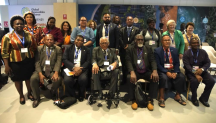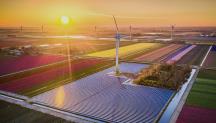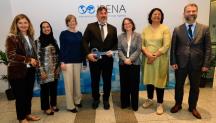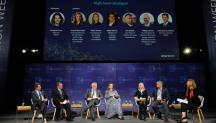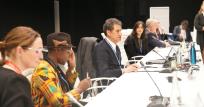
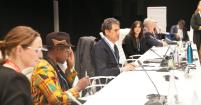
SDG 7: Win-Win for Ending Energy Poverty and Protecting the Climate
Newsletter
In 2015, the climate and development agendas crossed paths with the adoption of the Sustainable Development Goals for 2030 and the Paris Agreement. While climate change touches all facets of development, perhaps the most direct link is made through SDG 7 which calls for ensuring access to affordable, reliable, sustainable and modern energy for all by 2030 through the achievement of three targets: ensuring universal access to affordable, reliable and modern energy services; increasing substantially the share of renewable energy in the global energy mix; and doubling the global rate of improvement in energy efficiency.
A high-level roundtable discussion was held at COP25 in Madrid to discuss SDG 7 within the context of climate action, organised by IRENA, SEforAll, and UNFCCC, with support from the IEA and REN21. Given that two thirds of greenhouse gas emissions come from the energy sector this was a vitally important conversation.
IRENA’s Director-General Francesco La Camera opened the event with presentation on progress since 2015: “The good news is that we are making tremendous progress in all three areas. But at the current rate of ambition, the world will fall short of meeting SDG 7 and ultimately our 2030 and 2050 global climate objectives.”
These remarks were echoed by Liu Zhenmin, Under-Secretary-General and head of UN DESA, the UN division tasked with overseeing progress on the Sustainable Development Goals. He noted that at the current pace of the transition, in 2030 there will still be 430 million people without access to electricity and 2.7 billion people without clean cooking facilities.
Several speakers emphasized that the keys to success are target setting by governments and the establishment of effective regulatory and other enabling frameworks which are simple, fair, inclusive, and that ensure nobody is left behind. The strong view was expressed by many that a holistic approach is required; there is a need for systemic change rather than drop-in solutions. It was suggested that subsidies for fossil fuels must be redistributed for the purposes of promoting a more equitable, clean energy future. This correspondents to IRENA’s own findings calling for a re-direction of fossil fuel investments earmarked until 2050 of USD 18.6 trillion to keep the world on Paris Agreement track.
The consensus in the room was that we need to go further, faster. By rapidly accelerating progress in all three components of SDG 7 we can simultaneously move the world towards the 1.5°C pathway at the center of the Paris agreement, and ensure access to modern energy services for those who do not currently enjoy them. It is a win-win proposition.
Some promising examples: Denmark has passed new legislation mandating 70% emissions reduction by 2030 on 1990 levels. Latin American countries have set a regional target of at least 70% renewables in their electricity by 2030. In Rwanda, climate concerns have been incorporated into national planning and development in all sectors. The EU has announced its plans to enshrine carbon neutrality by 2050 in a Green Deal. And the World Bank is mobilizing financial support through the Energy Storage Initiative, which has mobilized USD 300 million to date and has 3 GW of renewable projects in the pipeline.
